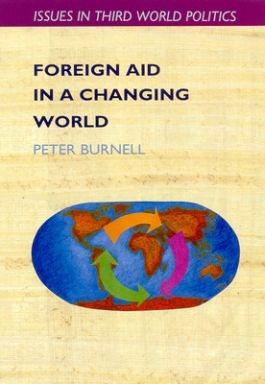Foreign Aid in a Changing World
1st Edition
0335231012
·
9780335231010
© 1997 | Published: September 16, 1997
An accessible introduction for all social science studentsA balanced, comprehensive and up-to-date treatment of the issues and trendsA guide to the past, present and future of foreign aidForeign aid has undergone considerable changes over the past fi…
Read More
Request More Info
After you purchase your eBook, you will need to download VitalSource Bookshelf, a free app or desktop version here. Then login or create an account and enter the code from your order confirmation email to access your eBook.
- Access the eBook anytime, anywhere: online or offline
- Create notes, flashcards and make annotations while you study
- Full searchable content: quickly find the answers you are looking for
Introduction
Who would manage an aid agency?
The case for giving
morality, justice and entitlement
The case for giving
mutual advantage and enlightened self-interest
Why some countries need development assistance
Cases for the prosecution
Third world, second world
aid's other half
Major donors
Large and little
The modern politics of aid
To Russia with love
Conclusion
change and continuity
References
Index.
Who would manage an aid agency?
The case for giving
morality, justice and entitlement
The case for giving
mutual advantage and enlightened self-interest
Why some countries need development assistance
Cases for the prosecution
Third world, second world
aid's other half
Major donors
Large and little
The modern politics of aid
To Russia with love
Conclusion
change and continuity
References
Index.
- An accessible introduction for all social science students
- A balanced, comprehensive and up-to-date treatment of the issues and trends
- A guide to the past, present and future of foreign aid
Peter Burnell examines the principal influences on foreign aid, what makes aid controversial, and whether it has a future. He provides an important text for all students of international relations and development studies across the social science disciplines.

